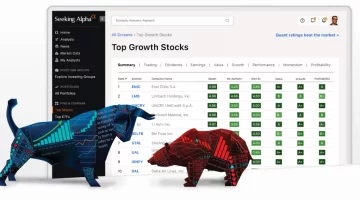Business Insurance: Planning Ahead, Protecting Profits
Everyone knows that all businesses go through ups and down. The specifics may differ in each case but there are broad similarities and recurring patterns. Some hardships may be out of our control, but many are within our power to anticipate and defend against. The most successful businesses have systems in place that limit the damage and allow them to recover faster. When emergencies happen, they do not have to panic as they have the means to deal with the situation. For example, they have secured the following types of business insurance to prevent financial shocks:
- General Liability Insurance
This is perhaps the most important kind of business insurance that owners must acquire. Small businesses can suffer greatly if they get sued for damage because of their products or services. This might happen if customers succumb to bodily injuries or sustain property damage because of defective items or careless staff. General liability insurance can serve as the safety net that will avoid a complete collapse and keep the operations going despite the legal predicament. Even an adverse ruling will not cause it to go under since the insurance provider will take care of the financial liabilities up to the agreed limit.
- Property Insurance
As a small business grows, it can expand and acquire more properties relevant to the operations. For example, it might own a modest office building, a restaurant, a warehouse, a shop, a gym, a spa, and so forth. Inside of these structures, there will also be valuable assets such as computers, inventory, commercial appliances, office equipment, and a variety of tools. All of them may be damaged by fire, floods, theft, vandalism, and other acts. If these were to happen, then the cost of repairs would be massive. The operations may also be interrupted, and the loss of earnings will mount until everything has been resolved. This form of insurance can take care of all these.
- Commercial Auto Insurance
This is specifically designed to cover damages to a business's fleet. For example, a lot of stores have their own trucks to obtain supplies and provide deliveries to their customers. If these got involved in accidents, then they might sustain significant damage that will require massive repair costs. The goods they carry may also get damaged which puts the business in further difficulties. In the worst cases, even the driver and other occupants may sustain injuries. Commercial auto insurance should be able to take care of all the needs arising from these incidents.
- Worker's Compensation
Workers may sustain injuries through the course of doing their jobs. For example, they might slip and fall on a wet spot while carrying goods from a truck to the warehouse. Others might lose fingers of limbs after operating a malfunctioning machine. Businesses can avoid such injuries through the use of safety gear, the conduct of regular maintenance, the posting of warning signs, and the training of all new workers. The few accidents that may occur can be taken care of by worker's compensation insurance so that the affected person can get immediate medical attention and may receive allowance while recovering.
- Professional Liability Insurance
Professionals may wish to get a special type of liability insurance that covers the damages that can be caused by their personal errors and omissions. For example, real estate agents, lawyers, accountants, or engineers might make costly mistakes while rendering services to their clients. The affected parties might sue to recover damages. This can be a long, grueling, and costly legal battle. It can be devastating to one's professional reputation. It is also extremely expensive if a person were to shoulder all of the costs out of pocket. It's always better to get insured just in case it happens.
- Data Breach Insurance
Some businesses store sensitive information about their clients, employees, and other businesses. The information may be in paper documents or in digital archives that are within their control. Despite high levels of security, there may be a data breach that results in stolen information and system damage. This happens so often these days that there is now an insurance policy that deals with the matter. This could also cover remote system attacks from hackers and damages to computer systems. Consult with an information system expert when looking for a suitable insurance provider for this type of service.
- Crime Insurance
Some businesses are more prone to certain crimes than others. Owners might find it prudent to get insured against such crimes so that they can recover right away from these setbacks. For example, a 24-hour convenience store might be situated in an area with rising crime rate. Nearby establishments might have already been victimized by robbers. Aside from making security arrangements, it might be helpful to get crime insurance so that whatever gets stolen can be replenished right away. Study the contracts to see what kinds of losses can be included in the coverage.
- Equipment Breakdown Insurance
Some businesses are heavily reliant on their workers. Others are dependent on their machines. For example, their operations might halt if their large printers, cold storage units, water purification systems, or CNC machines break down. Repairs can take time and they will bleed with losses while this is getting fixed. If you wish to protect your business from the costs incurred from these incidents, the get equipment breakdown insurance. The reality is that all machines have finite service life, and they will act up from time to time. Regular maintenance can reduce the headaches. Insurance takes your planning a step further.
- Business Interruption Insurance
Businesses may close their doors temporarily for reasons that are out of their control. These external forces might include unusually foul weather, government repairs of adjacent streets, nearby chemical hazards that need cleanup, peace and order problems, health-related closures, and the like. You may find some insurance providers offering coverage for the lost income during those situations and more. This will go a long way towards keeping your business going despite the closures. You will be able to keep paying your workers, your store rent, your business utilities, and so on.
- Accounts Receivable Insurance
A lot of business transactions are not conducted in cash. This is especially true for large purchases since it is impractical for people to be carrying massive amounts of money. They are typically paid for with credit cards or other forms of financing. Online payments, on the other hand, require electronic payments. Businesses are not always able to collect customer payments. Long delays can result in several issues with the payment of the business' own bills and loans, as well as the salaries of its employees. Insurance can protect against this.
More to Read:
Previous Posts:








